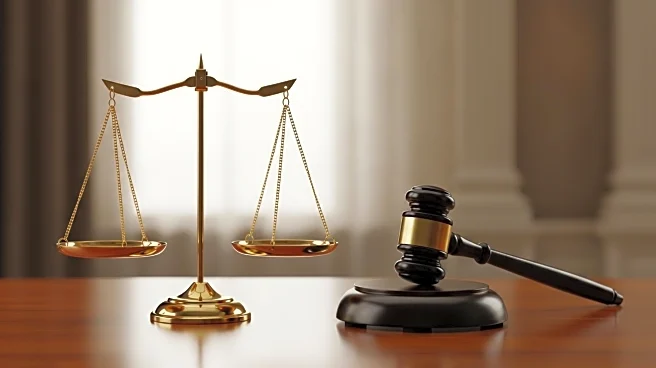What's Happening?
The American Civil Liberties Union (ACLU) of Colorado has filed a lawsuit against U.S. Immigration and Customs Enforcement (ICE) to obtain records regarding the agency's plans to convert two vacant state prisons into immigration detention facilities. The ACLU is seeking transparency on the potential expansion of detention centers, which could significantly impact local communities and the state's approach to immigration enforcement. The lawsuit aims to uncover details about the proposed facilities, including their capacity, operational plans, and the rationale behind choosing these locations.
Why It's Important?
This legal action by the ACLU highlights concerns about the expansion of immigration detention facilities and the lack of transparency surrounding such plans. The conversion of state prisons into detention centers could have significant implications for immigration policy and enforcement in Colorado. It raises questions about the treatment of detainees, the allocation of state resources, and the broader impact on local communities. The outcome of this lawsuit could influence how immigration enforcement is conducted in the state and potentially set a precedent for similar actions in other regions.
What's Next?
If the ACLU's lawsuit is successful, ICE may be required to disclose detailed plans for the proposed detention facilities, which could lead to public scrutiny and debate over the expansion. Stakeholders, including local government officials, community organizations, and immigration advocates, may respond with increased advocacy or opposition based on the disclosed information. The legal proceedings could also prompt discussions on the ethical and practical implications of expanding detention facilities in Colorado.
Beyond the Headlines
The lawsuit underscores broader issues related to immigration policy and the balance between enforcement and civil liberties. It raises ethical questions about the use of state resources for federal immigration enforcement and the potential impact on detainees' rights. The case could also influence public opinion and policy discussions on immigration detention practices and the role of state facilities in federal enforcement strategies.










